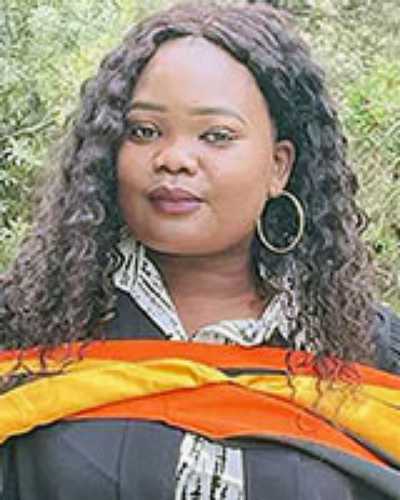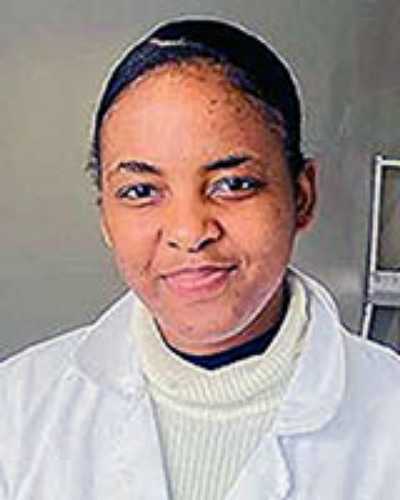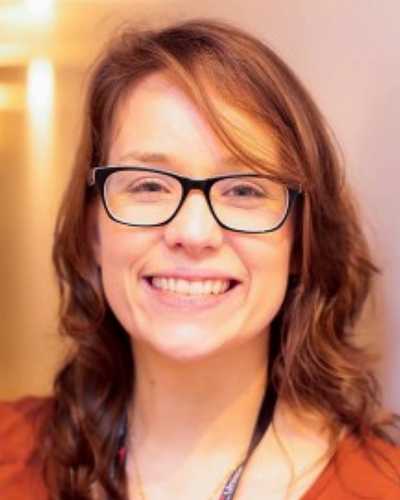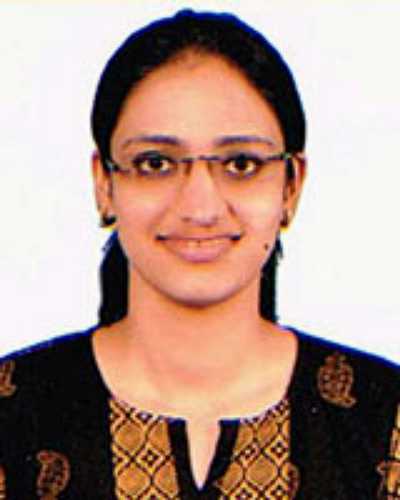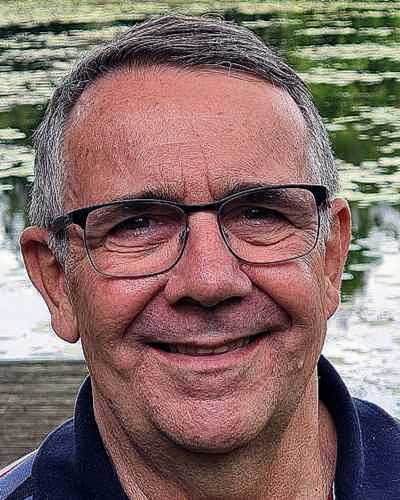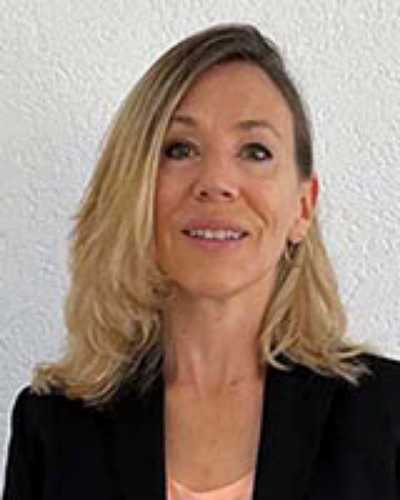Introduction
Rural communities have long struggled to access quality healthcare services1. As a result, the health status of people in rural areas is generally worse than in urban areas2. In low- and middle-income countries, where the majority of the population often live in rural and remote areas, resources continue to be concentrated in big cities3. Populations in countries with the highest proportion of rural residents generally have the poorest access to health care3. Those who require services more frequently continue to face additional barriers in accessing them4, thus exemplifying Hart’s inverse care law5.
Rural health challenges are a result of multiple factors. These include failures to recognise the need for specific rural health policies and interventions at various levels of government, rural determinants of health6, and contextual factors related to such things as socioeconomic status and demography, anthropology and geography that make accessing services more difficult for rural communities. As a result, rural health care is typically characterised by insufficient numbers of health workers, inadequate infrastructure, a disproportionate concentration of specialised services in urban areas, lack of diagnostic equipment and maintenance of existing infrastructure, and undersupply of materials and drugs3,7,8.
At a global level, little attention has been given to issues of rural health until relatively recently, although the Declaration of Alma-Ata on strengthening primary health care laid important foundations for tackling rural health inequities9. In 2010, the WHO issued policy recommendations to address the imbalances in the health workforce10. These were the first formal policy guidelines issued by the WHO concerning rural health, and have recently been updated11. The development of the workforce guidelines was prompted by the call of the Commission on Social Determinants of Health to address the imbalances in the geographical distribution of health workers in rural areas as a structural determinant of poor health outcomes12. In the same year as that commission, the WHO European regional office produced a policy brief related to rural poverty and health systems4.
Addressing rural health issues requires concerted efforts by governments and other organisations to improve health outcomes of rural populations13. It would appear self-evident that young healthcare professionals (HCPs) should be attuned to this and be ready to play a meaningful role. It is therefore important to understand their perspectives on the state of rural health care, and its future, in terms of how they see the future role they could play in making a difference to the lives of rural communities. As argued by one young South African HCP, in an interview for this research, ‘I think we need to listen to the younger generation that is going to have to deal with whatever issues are coming in the next 20, 30 years’. Without a new generation of HCPs being ready to take up the struggle for rural health care alongside communities, the future might be very bleak. We thus used an opportunity, as part of a research project to understand the perspectives of young HCPs regarding rural-proofing, to elicit their views on the state and future of rural health care, and their recommendations about interventions needed, particularly in terms of preparing a health workforce that can adequately address rural healthcare needs. To date, no studies have been published that have explored rural health issues globally from the perspective of young HCPS. This study seeks to address that gap.
Methods
Study design
This article was part of a larger qualitative study focusing on young HCPs’ ideas regarding rural-proofing14. The idea for the study emerged through conversations between the WHO, Stellenbosch University’s Ukwanda Centre for Rural Health, and Rural World Organization of Family Doctors (WONCA), as part of WHO’s planning of work for a special edition of Rural and Remote Health dedicated to rural-proofing of national health policies, strategies, plans and programs.
The focus of the component of the study reported here was the perceptions of young HCPs regarding the state and future of rural health care. The study was designed using an interpretivist paradigm.
Data collection
Data were collected in two phases.
In phase 1, semi-structured interviews were conducted with young HCPs involved as leaders of the Rural Seeds movement, which included students, postgraduate trainees and early career professionals (less than 5 years post final qualification). Eleven young HCPs agreed to participate, coming from Africa, Australasia, Europe, North America, South America. and South-East Asia.
In phase 2, focus group discussions (FGDs) were led by selected interviewees from phase 1 who showed interest in organising the discussions. They invited other HCPs from their regions to participate in an online discussion panel. The panels, which served as FGDs, were asked to respond to a similar series of questions to those posed in the interviews. The online FGDs included individuals from the following regions: South Asia, Africa, Asia-Pacific, North America and Europe, and South America, with two groups from Africa, one being from South Africa because of the location of the Ukwanda Centre for Rural Health.
Analysis
The interviews and FGD transcripts were examined separately using thematic analysis to identify common ideas and perspectives. The themes fully overlapped between the individual interviews and FGDs and were therefore merged into a single analysis. Participants provided input to the final analysis. The participant researchers were particularly important in ensuring trustworthiness of findings.
Further details on data collection were published in our previous article in this Rural Proofing special edition14.
Ethics approval
All the study respondents participated voluntarily. Anonymity and confidentiality were assured in the interviews; the potential risk of being identified related to publication of results was included as part of the informed consent process. In the FGDs, participants were made aware of the difficulty in ensuring anonymity and confidentiality given the open nature of the rural cafes but were assured that these would be applied in the transcriptions and reporting. Informed consent was obtained from all participants.
Ethics approval was granted by the Stellenbosch University Health Research Ethics Committee (Project number N21/10/106).
Results
The 11 interviewees consisted of medical doctors and medical students, while the six FGDs were made up of a mix of medical doctors and medical students, nurses and rehabilitation therapists. In the interviews, participants were from 10 countries; in the FGDs, participants mostly came from the country of the organiser of the discussions across the six regions.
The common themes that emerged were the current state of rural health care, attitudes towards rural health care, preparing health professionals for rural health care, and making a difference to rural health.
The current state of rural health care
Overall, the state of rural health care globally was seen to be problematic: a lack of equity, difficulties in access to health care, and multiple socioeconomic challenges, particularly in relation to living conditions, human resources and infrastructure.
Participant discussions highlighted four key subthemes in relation to the current state of rural health care: discrepancies in health resources and access to health care, lack of socioeconomic development, the diversity of rural communities, and the need for contextualised health systems strengthening approaches.
Discrepancies in health resources and access to health care: Participants referenced discrepancies in equity and access to health care when describing the state of rural health care in comparison to urban health care. Reasons for the significant discrepancies between rural and urban/metropolitan areas were similarly discussed, including social determinants.
Some participants noted that lack of access to health care for rural communities is often not recognised by governments.
[There needs to be] greater understanding of the actual needs of the population. People might not have the transportation to get to health care. A lot of rural communities are older people who don’t drive, and have more health needs. (Interview 3, Ireland)
This was contrasted with a statement crediting the government of one African country, Kenya, for attempting to address the issue of access in rural health care:
The political goodwill ensuring that there is an ambulance at every ward within a 7 km radius from every resident ensures that now some of these horror stories of people delivering by the roadside, or struggling to get to hospitals, are taken care of. (FGD, Africa)
Some participants discussed the consequences of inaccessible health care using personal anecdotes:
When [my father] is sick, he avoids [seeking medical care], because it’s far and he has to go to the city. It’s always a problem. (Interview 11, Brazil)
These personal anecdotes included feelings of awe when new technology was introduced to their region:
I am originally from the British Virgin Islands … [The hospitals] were always the first to get funding, and then all the other islands, it’s very patchy. I lived on one of those islands. So [going from only] two general practitioners or family doctors to [having] x-rays on the island was phenomenal. (Interview 8, UK)
The issue of access led to an important reflection on the healthcare system from the perspective of a young HCP:
I think there are some things that are perhaps not all over the world, but I know that in Africa that’s a big problem … we have to ask whether the health system and the way it’s structured is in itself … well thought through. (FGD, Africa)
The comments on access link into the question of the allocation of resources, which underlies the access challenge and issues related to the quality of care (including timeliness):
My biggest issue is that there are so many resources that are directed to urban health facilities, but there is already more than enough there ... compared to rural areas …They don’t even have … most of the basic services. … And not just resources such as … like medicines and technologies, but also … human resources. (Interview 5, South Africa)
The resources that are available to rural patients exacerbate the access challenge:
Initially mothers were never going to the health facilities, because when they were told they were going for a caesarean section ... they couldn't afford it. (FGD, Africa)
The standards that are set highlight this resource challenge but do nothing to address it:
If you are saying – just off the top of my head, access to a CT scan needs to be within three days of referral, that’s probably stretching it for anywhere … and if you are thinking of rural communities where you are going to have to do something to maybe make that more accessible. (Interview 3, Ireland)
Lack of socioeconomic development: Differences in contexts and in access were described in terms of the social determinants of health, which are seen to be critical in understanding the health needs of rural communities. These were particularly raised by participants from developing countries:
One component people constantly ignore is the socioeconomic determinants of health …, and this actually, the infrastructure, education, agriculture, that impacts on people’s health … by ignoring that, you are actually ignoring people’s health. So, we cannot talk about rural health without talking about education, agriculture, infrastructure, in terms of road networks and what this does in terms of telecommunications, and how this impacts people’s health, their access to health. (Interview 2, Kenya)
Participants further highlighted the lack of quality education in rural areas as a reason for general practitioner shortages:
One of my challenges, and this is across the board in primary health care in Africa, is that health systems in themselves, we can go to politicians and say well, there are not enough schools to cater to education needs, or there are not enough roads to address certain issues, certain remote communities, and that’s why healthcare practitioners don’t come there. (FGD, Africa)
It was noted that these factors are responsible for a lot of migration, in both directions:
We cannot just focus on health policies alone and … not focus on the other sectors as well, because the other sectors are also impacting greatly on how people move from rural to urban, or urban to rural. (Interview 2, Kenya)
The impact of roads was cited as one example of what needs to be done to improve the health of rural communities, as was ensuring improved water sources in health facilities. While significant improvements were noted to be taking place in some areas, this was acknowledged as being far from the norm.
Diversity of rural communities: Participants noted the importance of recognising that rural areas are not homogenous, and thus face different challenges.
One participant referred to their country as having ‘… rural and remote communities that are heterogeneous with great diversity’. The state of rural health ‘is based on a rigid urban/rural model that targets disparities rather than accommodating diversity of rural communities.’ (FGD, South Asia)
Another participant commented:
I think at least back in Canada, it’s kind of thought of oh, the rural communities are the farming communities. But you know, there are rural communities that are mostly indigenous, which would have a very different set of needs from a rural farming community. And I feel like those needs are often not met. (Interview 3, Ireland)
Need for a contextualised systemic approach: Participants spent time discussing the challenges of comprehensively strengthening health systems for rural communities:
Healthcare wise, for the subcentre and primary healthcare centres … the [system] is not functional. The guidelines are there … but it’s not executed, due to lack of manpower, because in such areas, like even the basics that we call the health worker is not available. (Interview 10, India)
It requires a systems approach to address the challenges:
We now need to look also at access to essential medicines, healthcare financing, the workforce that is there. (FGD, South Africa)
Attitudes towards rural health care
This theme was mainly seen in the individual interviews. Participants reflected on their own and others’ attitudes toward rural health care, which coalesced around motivations for rural practice, perceptions of rural health care, hopes and concerns. Participants also expressed themselves regarding their own future in relation to rural health care, with a number being very positive about their future contribution to rural practice.
Motivations for rural practice: The situation of rural communities and patients was an important motivation for working in rural areas:
I actually grew up wanting to be a paediatrician. … now, volunteering in the hospital in my hometown … I think that it’s shifted. I know that my rural community … needs family physicians. (Interview 1, Canada)
It was so sad to see [patients] having to travel, someone with obstructed labour, having to travel a day, before they can be able to access the nearest facility. And sometimes, even when we were doing outreach activities, we could not reach all the areas, due to poor road network, and just terrible weather and such. So, after seeing that, I decided that I am going to advocate for and fight for more resources in rural areas. (Interview 2, Kenya)
Some simply stated that they enjoyed rural health care:
I actually like working in rural areas, and … trying to improve and understand rural. (Interview 10, India)
Frankly speaking, the rural area chose me, rather than me choosing it, because I was placed in the place where I am working by the placing system for Com-Serve [compulsory community service] … working … in rural has been eye opening, and it has been very fruitful. (FGD, South Africa)
Perceptions of rural health care: In some countries, perceptions about rural health care were generally seen to be positive:
In Ireland … I think most physicians would be kind of considered rural, but it is considered prestigious because you do have all these skills, and you do have to do all these things and serve smaller communities. (Interview 3, Ireland)
Participants also expressed awareness of negative perceptions about rural health care:
You find that when you are trying to assist a patient and you refer to a facility closest to you … they dub them as primitive methods … and are now stigmatised. But at the heart of what the doctor was doing was to help the patient … I think there is a huge stigma attached to working in a rural setting. (FGD, South Africa)
This plays out in the perception that:
‘... obviously rural medicine isn’t taken that seriously by a lot of countries either.’ (Interview 7, Australia)
It was noted that the negative perceptions mainly came from those who live in urban areas:
The people who stay in rural areas it’s not a problem to attract them to work in rural areas because basically that’s where they are staying. It’s basically the people who work … in urban areas for them to be attracted to the setup. (FGD, South Asia)
In terms of their own perceptions, some participants highlighted the benefit of lived experience and immersion in rural areas. They discussed changes that they themselves had undergone in relation to rural health care, due to experiences they had:
When I was in the third year of medical school, I had the opportunity to spend some weeks in a rural area, in the Amazon region in Brazil. It’s far from where I live, so it was really different … It’s very important for the people living there, and I could see how much a doctor there could make a difference. It was a big inspiration for me. (Interview 11, Brazil)
Hopes and concerns: Participants expressed both hope and concern for the future of rural health care. Hope was inspired by seeing people – and particularly young HCPs – showing interest in rural health care as well as structures being in place with a dedicated focus on rural practice'
I am seeing more and more people getting interested in rural and rural healthcare. I’m seeing more [of] what Rural Seeds is doing, and how young professionals and young students are getting so interested in working and promoting rural health practice, and that gives me hope. (Interview 2, Kenya)
In terms of the Canadian context, they have recently established a medical school that is just for serving rural areas ... they mostly draw students from rural communities in the north, and then by going to that medical school, you agree to practice in the north for a number of years. (Interview 1, Canada)
There was a clear call for young HCPs to be involved in shaping the future of rural health care:
I think we need to listen to the younger generation … and maybe not focus so much on what was before … there does need to be paradigm changes. (Interview 5, South Africa)
I was thinking, what would attract my generation of healthcare professionals? I think it’s the challenges, like facing something new, to have the chance to be part of creating something, creating knowledge, creating ways to deal with the challenge of the rural healthcare system. (FGD, Brazil)
I think until young people are exposed to rural healthcare, until they know of the problems that exist in rural healthcare but also the benefits and the luxury that come with working in a rural area, then young people won't be so intrigued in working in a rural area. (Interview 5, South Africa)
Concerns about the future were also expressed, in relation to translating policy commitments into practice and reorienting the system towards strong primary health care:
We should have more and more primary healthcare in rural areas. (Interview 9, Sri Lanka)
The ability to contribute may be limited by system limitations in different contexts:
Invariably, it is our future. In this context, I think there would be a future, but … the worry is how fast we are reaching that … But the positive thing is in Sri Lanka, the healthcare is free of charge … people can approach healthcare facilities whenever they need, without worrying about the money they have, or their financial abilities. Those are important things, but I don’t know how long [this will take]. The problem is the pace we are trying to reach excellence in rural healthcare. It’s very slow. (Interview 9, Sri Lanka)
Safety was another important condition that was mentioned:
I would like to take us all to Maslow’s theory of human motivation and it applies everywhere including that we are human first although doctors … regarding our basic needs, we would like to have a good lifestyle. There are some basic safety needs that wherever I am I should be able to feel safe including the gender sensitive situations. (FGD, South Asia)
A lot of rural areas in Brazil too, we face violence, especially against women … it’s something that I am really afraid of too. I want to go there, but sometimes I know my limitations. (Interview 11, Brazil)
Envisioning future rural practice: The goal of future rural practice requires the support of like-minded, motivated colleagues:
Being around motivated people [health professionals] really helps – students among themselves can motivate each other. (Interview 10, India)
The combination of realism and positivity was well expressed by some participants:
I am hoping for this year or next year to find work in rural areas. But I am also afraid of going to those places, especially with the COVID situation, because I am a young doctor, I know how difficult it is, how it is isolated. (Interview 11, Brazil)
It’s like you need exposure of health professionals to rural areas, so that we can see how it is there, and they can see that they can have a future there. They can be happy there, right? And also, we need a way to connect our healthcare professionals so they don’t feel so isolated, and they can see that they have more opportunities there, because I feel that sometimes, since we are not exposed to that, we don’t consider that, because we think a rural place is where it will be a nightmare. You won’t have exams, you cannot treat people, you will be far, it will be dangerous, but it’s not like that. The reality can be another one. (FGD, Brazil)
Others wanted to contribute to rural health care, but were exploring that in different ways, such as having an influence on policymaking:
My passion primarily right now is to see that we actualise the universal health coverage first. So, after I serve for those two years, I might not stay there as a rural practitioner, but there are other ways to work for rural health without being in the community … my plans are to pursue a Master’s in health finance, health policy planning and financing, so that I go back to the government and be able to create those policies that will improve healthcare, not just in the urban areas, but also in the rural areas. (Interview 4, Nigeria)
Some participants expressed limitations in terms of their future contribution, for example making it clear that this would not be a career-long decision:
You asked whether I felt there was a place for me in rural healthcare. I do think there is a place. I don’t think that my place is going to be 20 years in the same surgery. (Interview 5, South Africa)
Preparing and retaining the healthcare workforce in rural areas
It was generally agreed that there needs to be targeted skills preparation for the rural clinical context and more support to enable rural practice. This starts with training health professionals who are better equipped to work in rural health care:
I think I just need more experience, and then I’d like to work [rural] … if I were to feel comfortable on my own, I’d want to be in a very rural setting with somebody else to kind of see how it works. (Interview 3, Ireland)
Our core medical practice is to make you a good general practitioner, and a good general practitioner is someone that should be able to work in any setting … you should have been equipped with skills, and after that, you can be posted somewhere and be the sole health provider in that community … I should be able to provide the basic healthcare services that are required of a general practitioner in a rural community, and also be aware of the challenges of that community that you might face and anticipate them. (Interview 4, Nigeria)
More support from urban areas for rural areas would also better enable rural practice and thus improve health care:
I think we could [build] a good rural healthcare system here, and it would benefit a lot of people. It would also help … for the major cities to help if a patient is receiving care in their rural area, they don’t need to go to the city to seek help there, or they will not develop complications. (Interview 11, Brazil)
Financial incentives were also mentioned as an important element in ensuring future rural practice:
Majority of people usually tend to avoid … rural healthcare basically because of lack of sufficient incentives and sufficient facilities. (FGD, South Asia)
Having mentors and role models was seen as an important determinant in facilitating future rural practice. Mentorship was proposed as a powerful way of developing support:
It’s really overwhelming if you have to work in an area … when … you don’t have specific training, you don’t have other health professionals to support you. For example in Rural Seeds, we have a project called the Mentor Mentee … When you are working in a rural area, or you are a young healthcare worker, it is very important if you can find someone to be your mentor. (Interview 11, Brazil)
In this way, the ‘older generation’ of rural participants can play a vital role in helping to develop a younger generation:
There is a very huge role to be played to pave the way for rural in terms of leading the next generation into what it means to practice in rural areas, and they [older practitioners] have a body of knowledge when it comes to solving rural health problems. If they came out and wrote their stories, their experiences … if that can be brought and done in a formal way, I think it can be a rich body of knowledge … to teach the younger generations. (Interview 4, Nigeria)
Students themselves can take action to influence their universities and to ensure greater exposure to rural health:
We started developing a project with this professor to start a rural health rotation in my university … and now we have a rural rotation in my university. I was able to participate, and it was a good experience, because it was really different from the experience I had before in another place. I saw how much the villages around here … need a doctor, they need students thinking about rural health, and I could see how my classmates were thinking about rural health and thinking about how much it’s different from the type of healthcare we were exposed to during our medical school. (Interview 11, Brazil)
Making a difference to rural health
Participants expressed themselves on the issue of making a difference to the state of rural health, discussing the kinds of actions needed to secure the future of rural communities and their health care. The important role of rural communities themselves, and the need to engage more with them, was a strong component of this.
A focus on social medicine was argued to be an important basis on which to address the challenges:
We don’t talk enough in our training about the issues of equity, about rural medicine, about social medicine. So, awareness of that helps you do what you do ... medicine is not just about working in the hospital and treating people. It’s about making sure they never get sick. (Interview 2, Kenya)
I do believe that health is affected by an array of social factors that operate on multiple levels … addressing this much broader [agenda] is essential to create more sustainable health programmes and a healthier safe environment especially in the developing countries. I think by integrating social data into population health and analytics platforms, which in turn can help identify social factors affecting health that exist in the population, is going to be a very great idea. (FGD, South Asia)
It is important that action is at multiple levels and across sectors, and data can help facilitate this:
It has to be multi-level … and most of all, at the local level … The people who have been given managerial and administrative positions in rural areas … are actually key … I will give an example of my experience at the health centre. When I went there, we barely had staff. We barely had beds for short stay ... The wards were not functional. I wondered what to do. Then I realised, it all depends on me, and what I choose to do in that position … seeing how policies and everything worked, I started sending data and advocating for more focus on that facility … with time, the Governor and everyone else involved with resourcing and distributions started focussing on that facility … that’s why I called it multi-level. It comes all the way down from the person who is actually working on the ground. (Interview 2, Kenya)
A range of possible solutions were proposed for the rural healthcare challenges expressed. There was clear agreement across the interviews that a comprehensive approach is needed:
More than anything, a multi-sectoral approach makes more sense in rural areas because it’s not just health. … it’s also about sanitation, it’s also about electricity and transport. That would be a good starting point to strengthen all these things … the basic healthcare needs, like to access services, automatically will get started once these things are in place. For that matter, even technology … basic connectivity, like for mobile phones to get connected … no roads, no connectivity … how are people supposed to come around. Even for doctors or any healthcare workers to go to such areas, these are like the basic things, and even water supply … those improvements should be in place… then your healthcare will automatically start going as well. (Interview 10, India)
Greater engagement with and support for rural communities came through strongly:
One of the speakers … spoke about the people on the ground, more especially nurses, to be exact, and also the community themselves. We cannot do this without them. One of the things that was implemented by the university I am currently affiliated with is engaging the community, and they said substance use is a huge problem, so we would really like for you to address this one particular problem, and then … they developed a community orientated substance use program which helps to rehabilitate patients, but on an outpatient basis, not in a rehab. That is one of the things that is helping the community that I am currently in. (FGD, South Africa)
Community health workers were seen to be an important part of engaging with rural communities:
They had an online class on strengthening community health worker programs, and that’s something that’s a great potential solution to rural health in Nigeria particularly, because one of the problems that we noticed is that we have a paucity of graduates, medical graduates, and to fill up the gap of the needs of Nigerians, that’s to cover the optimal recommended WHO doctor-patient ratio, will take a very long time. (Interview 4, Nigeria)
Participants stressed the importance of tailoring services to the needs of local communities:
If we look at the type of community that we’re serving, then there are certain services that need to be catered for, for that community. For example, if the community is … an elderly community … I would think there needs to be an OT [occupational therapist] in place, especially because you are dealing with an elderly community which are more prone to falls and other geriatric illnesses (Interview 5, South Africa)
At the same time, the community’s voice needs to be heard, so they can have influence where decisions are made:
[To] enable rural communities to have a bigger voice in Queensland Health is just to have a division within it that … is just from rural communities, and it’s not just metro people making decisions that impact everyone else. (FGD, Asia Pacific)
This need to change who makes decisions was also expressed in relation to giving rural exposure to students:
One of the main things I work on is [addressing the] lack of … rotational opportunities for medical students to have exposure, let alone have retention in rural settings. A lot of the red tape we find is that the policies are all again university centric; state, urban, location centric, which disadvantages rural communities a lot, because they are … significantly different, and we have a lot of red tape because all of the procedures and policies for students trying to have any sort of knowledge or exposure to rural medicine has to go through urban centres first. (FGD, North America)
Discussion
This study explored the attitudes of young HCPs regarding the future of rural health care. Findings indicate that, from their perspective, access to health care in rural areas remains a significant problem. Noting this, participants clearly expressed their desire to make a difference, and their optimism for a better future. They want to see practical implementation of meaningful solutions to the difficulties they have seen and experienced in rural health care.
This research was undertaken as part of a larger global study on rural-proofing, where participants clearly indicated that rural-proofing will not be effective if it ignores the perspectives of local rural health workers14. The data in this current study suggest that key to this is addressing workforce needs, which these workers see as central to rural health care, through tackling issues that affect the motivation of HCPs to practise there and ensuring that these professionals are adequately trained, prepared and supported to work in rural contexts. These data align well with the WHO guidelines on rural health workforce11.
Addressing the preparation of HCPs to work in rural areas is indeed vital for the future of rural health care. Janczukowicz and Goreux recently noted that professional attitudes of students are being formed from the start of their undergraduate education, which requires careful curricular planning in partnership with disadvantaged communities to ensure the development of necessary competence and values to address their needs15. Apart from rural origin, an educational program that prepares for rural practice has been shown to be one of the strongest factors associated with rural practice across medical, nursing and related professions16.
Participants were asked about their motivations for rural practice. They mentioned personal connections to rural communities, related to their origin or their exposure, and personal relationships with patients as some of the motivating factors, demonstrating the importance of a rural origin or exposure to rural areas during training as key factors in the decision to practise in rural areas17. The important role of rural communities themselves, and the need to engage more with them, was a strong component of this. Their hopes were also inspired by seeing people – and particularly other young HCPs – showing interest in rural health care.
Participants attributed the current status of rural health care to resource allocation decisions and the lack of specific contextualised solutions to diverse rural communities. Lack of socioeconomic development was noted by them as impacting both the social determinants of health and the lack of a welcoming environment for HCPs. While greater economic development conventionally leads to improvements in the health status of the population, it must be noted there is usually a significant lag in the time it takes for these to impact on health status18.
Participants showed a keen awareness of the limitations of their roles as healthcare professionals, and a clear understanding of the social determinants of health. This highlighted to them the importance of an intersectoral approach and the involvement of multiple players in rural-proofing interventions. Acknowledging the well-documented relationships between poverty, poor health and healthcare outcomes, participants confirmed from their own experience that the rural poor have not only a higher burden of illness due to various social determinants, but also less access to health care to address their ill health. The access challenge was described as being related to the common problems of lack of infrastructure and a shortage of healthcare workers, but also to affordable transportation, which has been noted to play a significant role in the wellbeing of rural communities19,20. This understanding accords with a particular rural health sensitivity recently described by Fors (2023), which invokes an ongoing, holistic responsibility towards the rural communities in which HCPs are involved21.
A recent policy perspective on the human resources needed to address population heath expounded on the need for such a workforce to be able to address social determinants of health, understand intersectionality and work in coordination with multiple skilled providers in social and health care21. The views expressed by the young HCPs in this study accord fully with this understanding and suggest that they will be well equipped to meet the challenges of rural health care in the future.
Strengths and limitations
The perceptions expressed in this study are of young HCPs who have an interest in the topic being explored. These perceptions should therefore not be generalised to all young HCPs.
The findings suggest a wealth of wisdom and understanding among young HCPs that needs to be harnessed. However, to obtain generalisable feedback on a series of possible interventions aimed at solving rural health issues for future studies, a wider sample of young HCPs would need to be considered.
Rural Seeds is a movement for young doctors. As a result, the study participants were almost all medical professionals, and thus the inclusion of other health professionals, such as nurses, pharmacists and rehabilitation therapists, was limited. We also recognise that these participants were an unusual group of individuals, as members of Rural Seeds. This represents both a limitation (they were clearly positively disposed to rural health) and a strength (because of the insights they shared).
The study was conducted in two phases as the intention was that the phases would speak to each other. There was an overlap in responses, which led to both datasets being merged. Thus, the developmental understanding that was hoped for did not occur, and the testing of ideas raised in the first phase was carried out in the second phase. However, the data collected were substantially reinforced by the process of merging the phases.
Conclusion
This study uniquely explored the perspectives of a global group of young HCPs with an interest in rural health. While they are aware of the challenges of rural health care, they remain optimistic and are committed to making a difference in their communities. It is hoped that young HCPs may include a new generation of rural health activists who will advocate for rural communities and for a better rural health workforce, not for the sake of the professionals, but for the sake of the communities they serve. For their hopes – and the hopes of all of us involved in rural health in one way or another – to be realised in terms of rural health equity, such individuals should be nurtured and celebrated. Health professional training institutions need to take up the challenge to develop and support more students and graduates with the same aspiration to join the rural health workforce in order to improve the lives and overall health status of rural communities.
Acknowledgements
We acknowledge the tragic death on 24 June 2023 of Mustapha Tukur, a medical student leader from Nigeria, who was a Rural Seeds ambassador and part of the team of authors on this article.
We thank all participants for their time and willing contributions.
Ukwanda Centre for Rural Health, Stellenbosch University, gratefully acknowledges its partnership with the WONCA Working Party on Rural Practice and Rural Seeds in carrying out this research.
Funding
This research and the resulting article were commissioned to Stellenbosch University by the WHO, through WHO Agreement for Performance of Work with Stellenbosch University, registration number 2021/1166157-0. This is linked to the WHO and Government of Canada project entitled ‘Strengthening local and national primary health care and health systems for the recovery and resilience of countries in the context of COVID-19’.
Conflicts of interest
The authors declare no conflicts of interest.
Disclaimer
This article represents solely the views of the authors and in no way should be interpreted to represent the views of, or endorsement by, the World Health Organization. The World Health Organization shall in no way be responsible for the accuracy, veracity and completeness of the information provided through this article.
References
You might also be interested in:
2021 - Change in the geographic distribution of human resources for health in Turkey, 2002–2016
2006 - Rurality and mental health: an Australian primary care study


